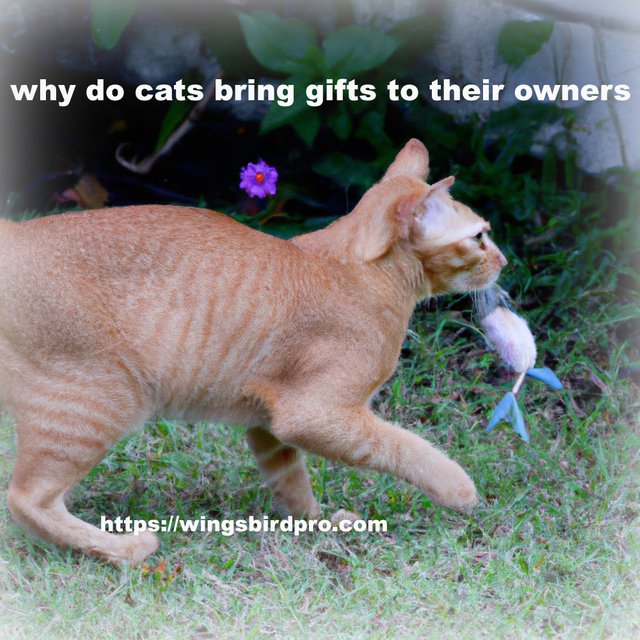Unlocking the Enigma Behind Cats' Gift-Giving Habits: An Exploration of their Ancestral Roots and Love for their Owners
Behind Cats' Gift-Giving Habits
Cats are one of the most beloved pets in the world, and their adorable and quirky personalities have captivated the hearts of people for centuries. One of the most endearing and intriguing behaviors of cats is the practice of bringing "gifts" to their owners. Whether it be a toy mouse, a piece of string, or a recently captured prey, it is not uncommon for cats to proudly present their offerings to their human caretakers. But why do cats do this? In this article, we will explore the reasons behind this fascinating behavior and unlock the enigma behind cats' gift-giving habits.

The answer to this question can be traced back to their ancestral roots as hunters. Cats are natural predators and have a strong instinct to hunt and bring back food to their families. This behavior is deeply ingrained in their biology and is an essential part of their survival as a species. In the wild, cats would bring back prey to their cubs or mate as a way of providing for them and ensuring their survival. This is not just a matter of food provision, but it is also a bonding experience between the hunter and the recipient. By bringing gifts, cats are establishing a connection with their family and expressing their affection.
Similarly, domesticated cats may bring gifts to their owners as a way of demonstrating their love and affection. Cats are known for their independence and aloof personalities, but they still have a strong desire to bond with their caretakers. By bringing gifts, cats are showing their affection and seeking attention and affection in return. It is also believed that this behavior can help to strengthen the bond between a cat and their owner, making them feel more secure and comfortable in their home.
Another reason cats may bring gifts to their owners is to express their natural hunting instincts. Even though domesticated cats are no longer required to hunt for their food, their instincts are still present. By bringing gifts, cats are satisfying their urge to hunt and engage in natural behaviors that are essential to their well-being. These instincts are so strong that even indoor cats, who have never had the chance to hunt in the wild, may still display this behavior.
It is important to note that not all cats exhibit this behavior, and it can also vary based on the individual cat's personality and upbringing. Some cats may be more likely to bring gifts than others, and the frequency and type of gifts can also vary. Some cats may only bring toys or other small items, while others may bring live prey such as birds or mice. The type of gift a cat brings may also depend on their environment. For example, a cat living in an urban area may only bring small toys, while a cat living in a more rural area may bring live prey.
The process of gift-giving in cats can be a complex one. For example, when a cat captures a mouse or bird, it may play with it for a while before bringing it to its owner. This play behavior is an essential part of their natural hunting instincts and helps to reinforce their hunting skills. The act of bringing the gift to its owner is also a way for the cat to showcase their hunting prowess and demonstrate their ability to provide for their family.
Receiving a gift from a cat can be a delightful experience, but it is important to understand that it may also carry some risks. For example, a live prey gift may carry diseases or parasites, and it is important to handle it with caution. Similarly, toys and other items may present a choking hazard, especially for young children and other pets.
Conclusion
The reason why cats bring gifts to their owners is a complex and fascinating subject. It is a combination of instinctual behaviors rooted in their ancestral roots as hunters, the desire to bond with their